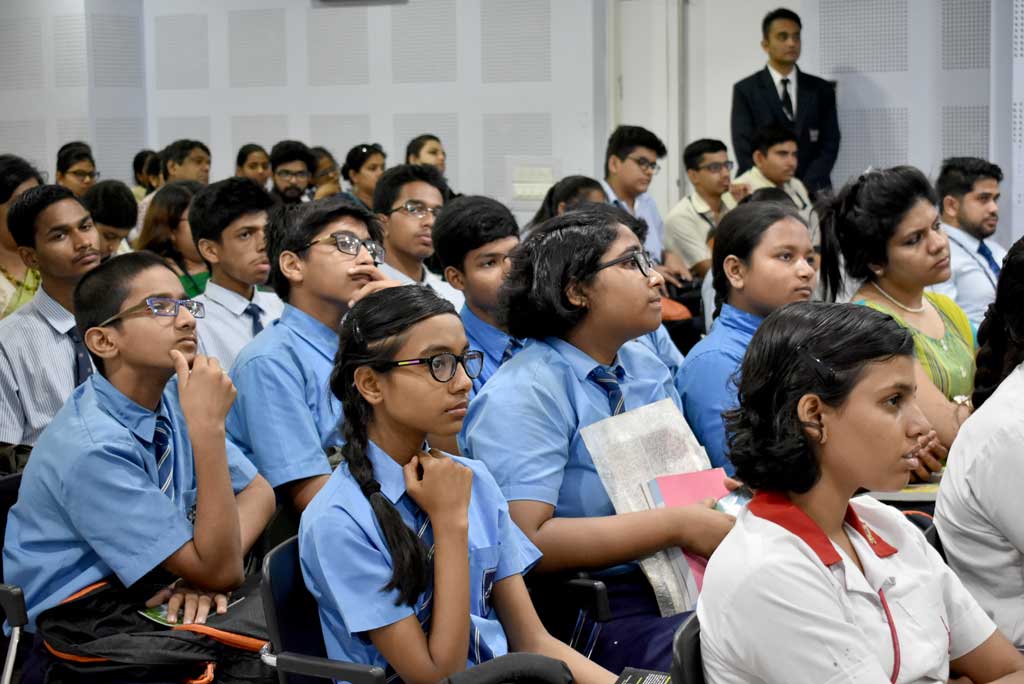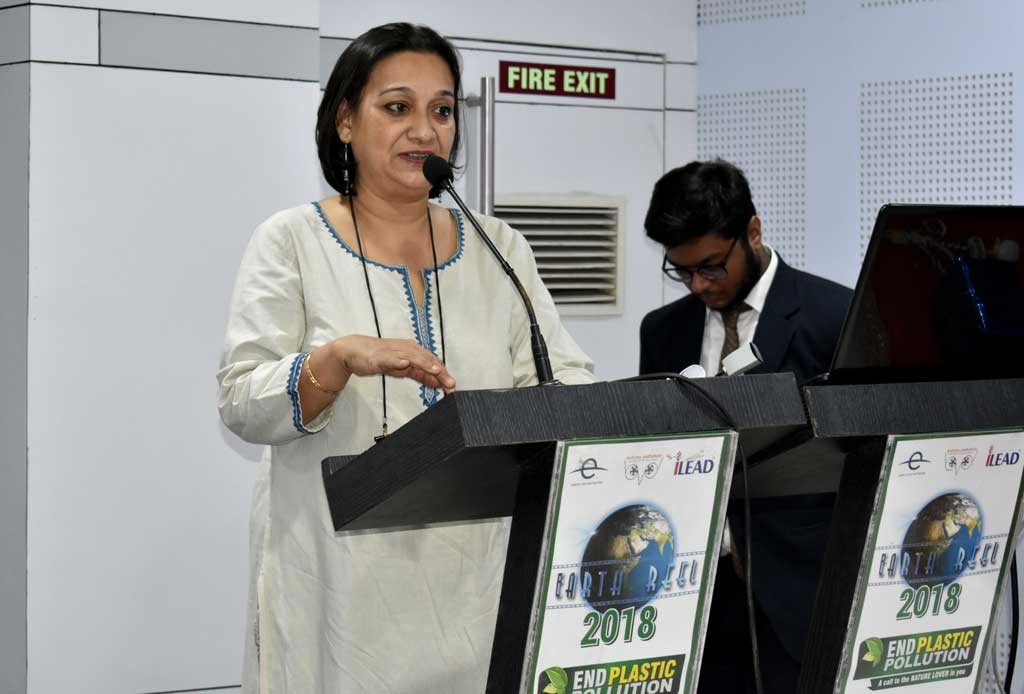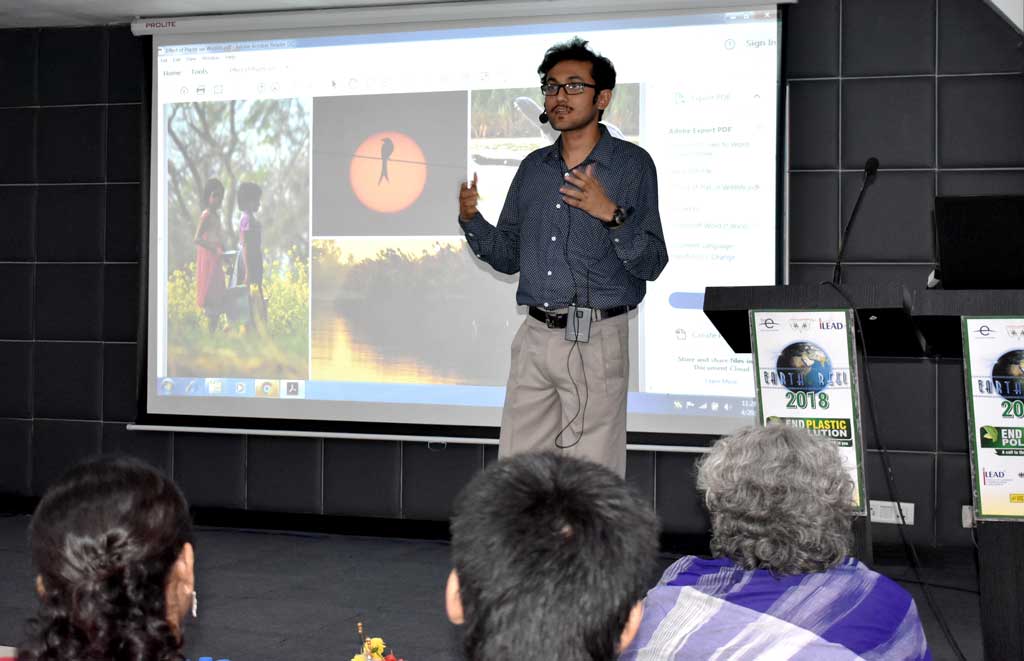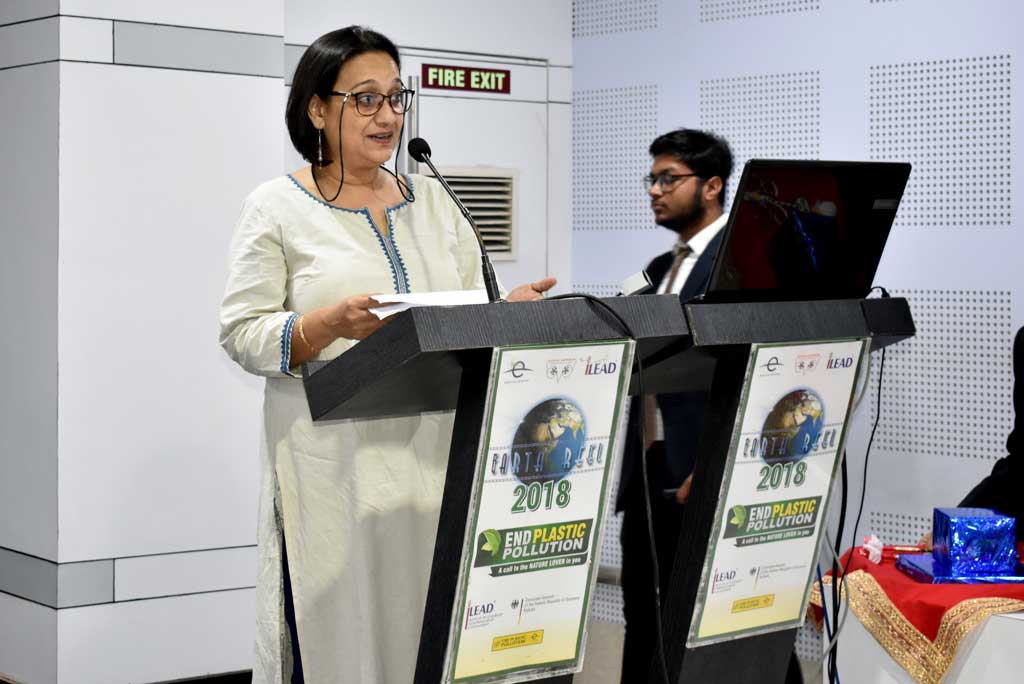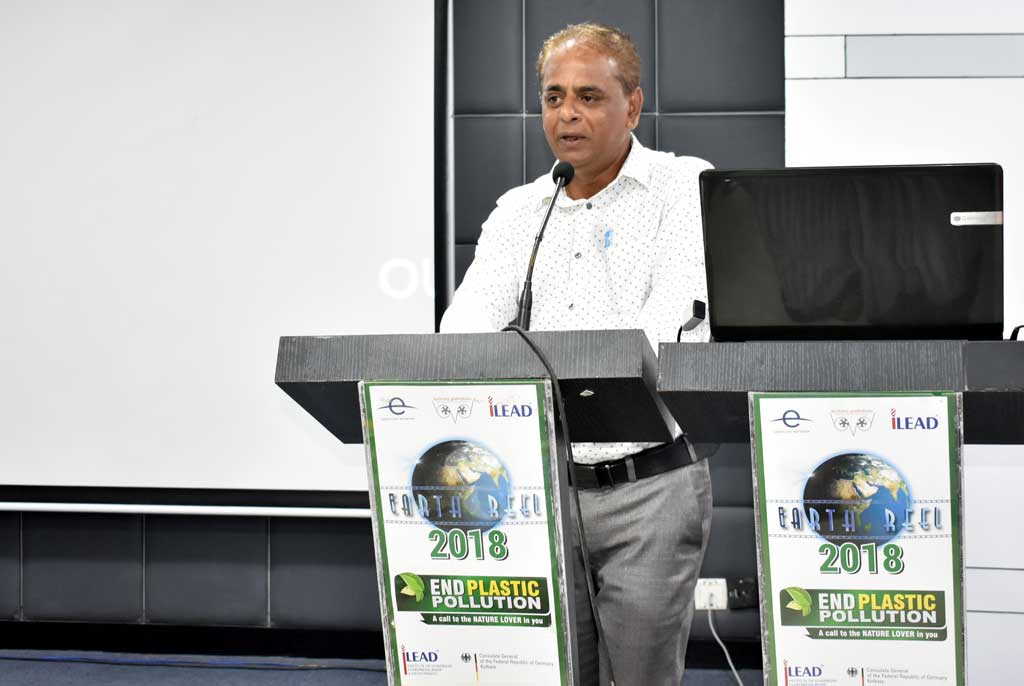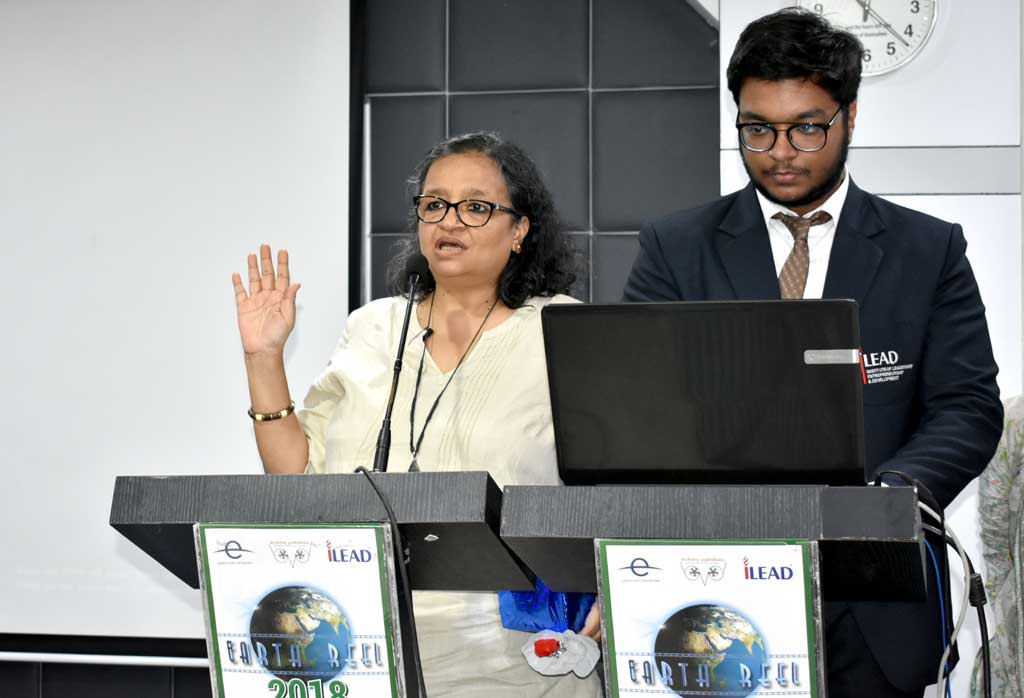Orientation Programme of Earth Reel 2018
Event Date:
April 20, 2018
The mockumentary "The Majestic Plastic Bag" set the tone for the day. An audience of 100 plus, constituting teachers and students from Kolkata schools watched with great amusement the fate of a plastic bag from the departmental store to the Great Pacific Garbage Patch. Amusement turned to alarm as the film informed the audience that eight million tons of plastic are drained into the ocean every year.
However, the opening presentation by Mr. Pradip Chopra, Chairman iLEAD came as an counterpoint. He asked the audience, "If we say 'no' to plastic, to what do we say 'yes'?" Which other material leaves a lower carbon footprint than plastic? Which other material causes less degradation to the environment than plastic does? He said that the first business venture of his life had been to wash plastic bags of the plant nurseries using waste soap water and recycle them. Later in his career, he got a national award for inventing a way of recycling tetra packs. Mr. Chopra asserted that plastic is more of a scapegoat than a culprit. The real culprit is our habit of littering plastic. Every day new ways to recycle plastic are being invented, one of the latest inventions being, constructing plastic roads.
Mrs. Karuna Singh, Country Director, Earth Day Network, spoke to the young audience about the first celebration of Earth Day on April 22, 1970 and the first national co-ordinator of Earth Day Network, Denis Hayes, then a young Harvard student, today a veteran environment activist. One of the major concerns of Earth Day Network has been to promote recycling and this year the focus is on plastics. In her presentation, Mrs. Singh rolled out statistics on plastic consumption and plastic waste. Showed startling visuals of plastic litter on land, in sea and inside the intestines of animals. Mrs. Singh ended with a call to do something drastic. She strongly suggested ways of upcycling plastic and urged everybody to begin separation at source.
iLEAD faculty Archan Mitra was the next speaker. He focused on plastics and animals. He began with the picture of a tiger with a plastic bag in his mouth and said that animals do not have the intellect to discern the properties of a material they are not used to. "But", he said, "in the concrete jungle, some animals have invented unique ways of recycling plastics." After showing the bio diversity in the "blue planet" and the "green planet", he showed a bird's nest in a golf course in Australia. The nest was largely made out of plastic scrap and the bird made an attempt to woo a partner with a scarlet plastic heart.
If urban dwellers like us want to save ourselves from the onslaught of plastic waste, we need to begin 'separation at source' on a war footing. Ms. Rupa Pandit, co-ordinator of Greenagers, an environment activists' group at Assembly of God Church School, spoke about the years of effort put in by her group to initiate separation at source in her school. When she was told that separation at source will take away the livelihood of rag pickers, she made arrangements to train rag pickers to upcycle thrown away plastics into attractive artifacts. Today they sit in a non hazardous and comfortable environment and make plastic baskets, files and boxes. The students proudly displayed some of these artifacts. Greenagers have also been active at different levels of society to spread awareness about plastic recycling. They have been getting support from SAFE in their worthy endeavors.
The next person to take the dais was Mr. Curtis Arathoon, Founder, "Green for Life Foundation". The Foundation has a recycling project turning waste plastic bags into upcycled files, folders and pencil bags. Mr. Arathoon began his presentation by showing a plastic bag less that 40 microns in thickness. He said that it was an illegal product and yet, it is openly in circulation in our society. Many years back, a challenge had been thrown at Mr. Arathoon to invent ways of recycling the plastic that was littered on the forest floor. He came up with a technology called the "Fusion technology". Today he is making files and folders using this recycled plastic. Mr. Arathoon warned the audience that we are sitting on a time bomb, ready to engulf us with its sheer volume.
After a series of thought provoking presentations, it was now time for film screening. The film "Kolkata 2070", produced by the Consulate General of the Federal Republic of Germany in Kolkata, was ready for screening. Deputy Consul General, Mr. Jürgen Thomas Schrod introduced the film and urged everybody to take small steps to minimize plastic waste in this city. Ms. Mallika Jalan, executive producer of the film, was also felicitated. In her short speech she reiterated that everything that was shown in the film was based on research and established facts.
"Kolkata 2070" showed how this city that has nurtured so many great minds, is now in danger of going under the sea due to global warming and rise of sea level. Among all the coastal cities in the world, Kolkata is one of the most endangered. The problem is surmounted by unplanned growth of the city and the municipality not running at its most efficient best. In the film, veteran actor Soumitra Chatterjee engaged with a group of youngsters to shake them out of their complacence and make them aware how melting of polar ice caps is directly linked with their own destiny.
The last presentation of the day was made by Subha Das Mollick, senior faculty, iLEAD and Secretary, Bichitra Pathshala. Mrs. Mollick began with a small recap on the preceding sessions. She asked the students what were some of the most stunning visuals, most revealing facts, most touching anecdotes and most mind blowing figures they had encountered in the different sessions through out the morning. Then she gave the guidelines for participation in Earth Reel and shared some ideas on plastic related research that the students can carry out in their school labs. She also announced that there will be a one day worksho at iLEAD to hone the students' skills on some key aspects of film making.
The morning session ended with the announcement of important dates in the Earth Reel time line.
In the afternoon, the students and teachers of Bengali medium schools, who have given their names for the film making workshop, stayed back for an orientation of the forthcoming workshop. They were shown some films from earlier Earth Reels and told about the different categories of participation in this film making competition. This year a special category of participation is being created for the workshop participants. But many of the participants expressed a desire to participate in the regular category too. The workshop plan and the registration form was shared with the participants.
Thus the day of Earth Reel orientation concluded on a note of satisfaction, with a promise of more activities in the near future.








